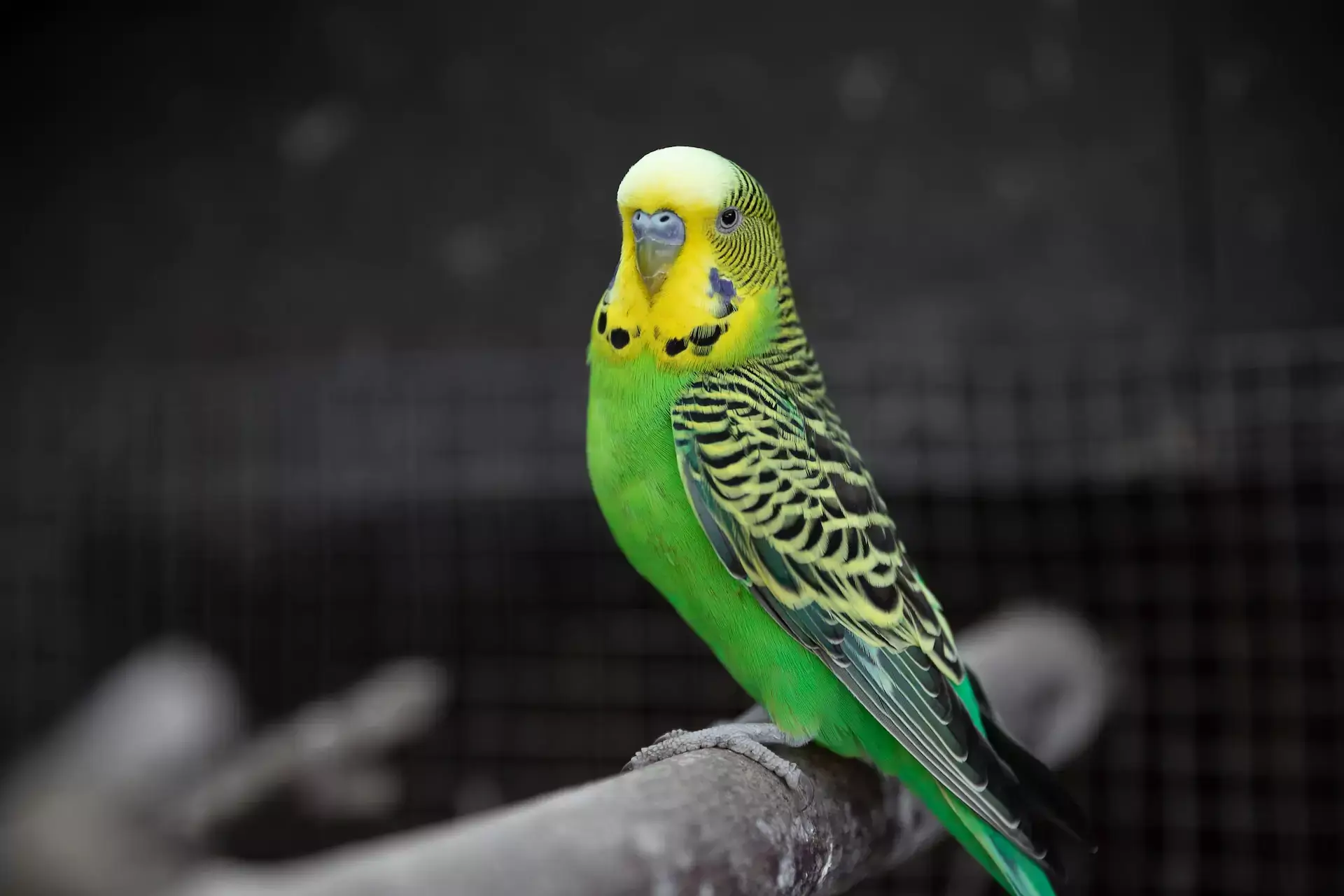Fun Facts About Our Feathered Friends
Did you know that birds are one of the most popular pets in America? Fido and Fluffy take the first and second places, while fish swim into third place. According to the American Veterinary Medical Association, there are over 7.5 million pet birds in the United States. Keep reading to discover more about Man’s Fourth Best Friend from a De Pere, WI veterinarian.
An Unforgettable Story
Charlie, a blue-and-gold Macaw, has gained quite a reputation at Heathfield Nurseries in Surrey, England. Based on reports, Charlie was born in 1899. There is a rumor circulating that Charlie was once owned by Winston Churchill. Supposedly, he taught her how to express her strong disapproval towards Nazis, especially Hitler. Churchill’s family members refute this claim, and Charlie has not provided any clarification. Nevertheless, the bird is content, in good health, and receiving proper care.
Not Exactly A Birdbrain
An incredible little Budgie named Puck amazed everyone with her remarkable intelligence. The bundle of feathers learned 1728 words, securing herself a well-deserved spot in the prestigious Guinness Book of World Records.
Polly Gained Popularity During The Pandemic
There was some positive news regarding the pandemic, for our animal friends. Polly fared quite well during quarantines: the popularity of both pet and poultry birds increased during the lockdowns.
They Range Drastically In Size
Hummingbirds are the tiniest birds on the planet. These cute little creatures have the amazing ability to fly backward and hover in place.
The ostrich is the largest bird in the world. These impressive birds can grow up to 9 feet tall and weigh between 220 and 350 pounds.
Not All Birds Fly
Some birds are flightless. The Kakapo parrot of New Zealand, a stunning green bird that exudes a charming and endearing aura, is one of them. These large birds can weigh over seven pounds. The Kakapo’s inability to fly leaves them susceptible to habitat loss and other dangers, including predators.
Flightless birds once thrived in New Zealand. However, the introduction of cats, weasels, and other animals by traders posed a significant threat to their survival. Fortunately, the Kakapo, which was once endangered, seems to be on the brink of making a comeback. Hope for the best!
An Undervalued Friend
- Pigeons are often seen as bothersome in modern times. However, these gentle birds are truly remarkable. Not only can they navigate their way back home from long distances, but they also have many other remarkable qualities.
- Young pigeons can stay in the nest for about six weeks, which is longer than the average duration for most other bird species.
- Pigeons thrive in urban environments, due to their preference for concrete and stone.
- There might be over 1 million pigeons in New York City alone.
- Pigeons may have been one of the first birds that humans domesticated. There is evidence of their presence in ancient Mesopotamian art dating back to 4500 BCE.
- They were extremely helpful during times of conflict. Pigeons were commonly used to transmit messages.
- Their messages have been credited with saving thousands of lives.
- They were commonly utilized to transmit distress signals from sinking ships.
- Their vision is outstanding. In fact, their ability to perceive ultraviolet light has proven invaluable in locating survivors of distressed or sinking vessels.
- Did you know that pigeon racing is a popular sport? These birds are fast enough to make races enjoyable for spectators.
Wheeling In The Sky
Have you ever observed a group of swallows gracefully soaring through the sky, moving in perfect synchrony as if performing a beautiful aerial ballet? This phenomenon is known as a murmuration. Experts suggest that birds engage in this behavior to confuse potential predators, making it challenging for them to distinguish individual birds. The birds may be reacting to a unique form of biological communication, a sort of natural radio transmission, which allows them to establish intricate patterns. Every bird interacts with its fellow flock members, enabling the group to move in unison.
May I Offer You A Cracker, Polly?
Parrots have been beloved companions for centuries, capturing our affection, chatting with us, and perching on our shoulders. These vibrant creatures come in a wide range of sizes, colors, and personalities, and can be, well, a bit extra.
- Alexander the Great brought some back from India.
- Parrots belong to the psittacine order.
- These birds are commonly referred to as hookbills, due to the distinctive shape of their beaks.
- The ancient Romans taught Polly to speak Latin.
- They are very intelligent. A parrot named Alex was known for his remarkable intelligence, which was said to be on par with that of a 5-year-old human child. His parting message to his owner was: “Be good. I love you.”
- Parrots sometimes use tools. A study conducted by the University of York and the University of St. Andrews focused on the behavior of Greater Vasa parrots, specifically their ability to crush cockleshells using pit dates and pebbles.
- They have a unique toe arrangement. Most birds have four toes on each foot. Parrots’ feet are unique, with two toes pointing forward and two toes pointing backward.
- They have the ability to crack the world’s toughest nuts with their beaks.
- The smallest parrot is the Pygmy parrot. The Pygmy measures a mere 3 inches in length and has a unique diet of mushrooms, which sets it apart from other parrots.
- Nearly one-third of all parrot species are at risk of extinction.
- Some parrot species have the ability to mimic human speech.
- Scientists from MIT, Northeastern University, and the University of Glasgow conducted a fascinating experiment where they trained parrots to engage in live online chat conversations with each other. Most of the birds thoroughly enjoyed their Zoom meetings!
- Some parrots have a longer lifespan than humans. Smaller parrots, like parakeets, typically have a lifespan of ten to twenty years, while larger ones, such as Macaws, can live for 100 years or even longer. (It’s important to think about this before deciding to adopt a pet parrot.)
Raven About Our Feathered Friends
corvids, such as crows and ravens, are quite fascinating. These animals are incredibly intelligent! They form lifelong bonds and even hold ceremonies to honor their deceased. They have a knack for determining who is friendly and who is not, and then spreading the word to their circle of friends!
Painting A Pretty Picture
Blue jays often collect paint chips. There is a purpose behind this behavior – they are actually seeking out the calcium concentration in the paint, which comes from limestone.
Turn The Volume Up
The white bellbird is the world’s loudest bird. This beautiful bird found in the Amazon captivates potential mates with its mesmerizing song. (Mesmerizing to them, apparently: to human ears, they sound more like a fire alarm.)
Our Only Feathered Friends
Feathers are exclusive to birds. However, it’s worth noting that not all birds have feathered heads. Vultures, marabou storks, and ostriches all lack feathers on their heads. The bald eagle, however, is not actually bald.
Polly Likes To Get Down
Have you ever come across videos of pet birds joyfully dancing to their favorite tunes? Many of our winged buddies really enjoy getting down! This is just one reason Polly makes such a fun pet!
Do you have any inquiries regarding bird care? Feel free to reach out to us here at your De Pere, WI pet hospital whenever you need assistance! We’re happy to help!



